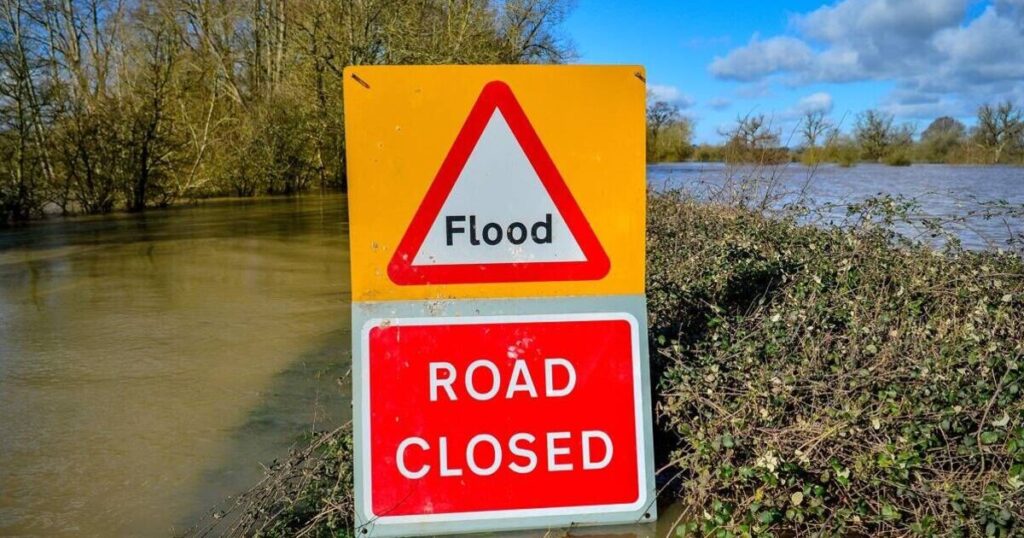
Aviva’s latest analysis reveals a staggering 35 percent of home insurance flood claims are lodged between June and August, highlighting the unexpected summer deluge risk.
The insurer’s review of home and commercial policy flood claims from 2013 to 2024 shows that July and August are particularly perilous, each with 12 percent of annual flood claims, closely trailing December’s 17 percent.
Interestingly, the data suggests floods are increasingly occurring outside the traditional “flood season” of the colder months.
Historically, winter was the peak time for flooding, as seen in 2013, 2014, and 2015, but Aviva’s records indicate a shift, with summers in 2016, 2018, 2020, 2021, and 2022 bringing the majority of flood claims, especially during August 2020 and July 2021.
Summer floods typically arise from intense rainfall on parched land, contrasting with winter’s river overflows due to persistent rain on saturated soil.
The geographical trend also shifts with the seasons; northern England and the South West face more winter floods, while London, the South East, and eastern England brace for summer flash floods.
Jason Storah, CEO of Aviva UK & Ireland General Insurance, has issued a stark warning about the increasing risk of summer flash floods across the nation. “Traditionally, we think of floods happening in the autumn and winter, when rainfall occurs over a period of time and rivers reach capacity. However, this analysis shows that floods can and do occur at any time and summer flash floods are becoming more commonplace.”
He emphasised the need for constant vigilance and preparedness: “This pattern of flood claims suggests that residents and businesses should be prepared for floods at any point during the year and put in place a flood action plan.”
Storah highlighted that while those near water bodies might be on alert, flash floods often strike without warning, especially after prolonged heat. “Flash floods can catch us off guard as they are sudden and harder to predict, so we’d urge people to get ready and take action to protect their homes or businesses.”
He offered practical advice for property protection: “This can mean simple things like moving sentimental items to higher levels or installing flood gates at their properties. As urban areas can be particularly susceptible to flash floods, we’d also encourage people to consider their outside spaces, ideally including permeable materials such as lawn, plants or softer landscaping materials like gravel to help water to drain.”
The warning comes as an Aviva-commissioned Censuswide survey from last August revealed that over a quarter (27 percent) of UK homeowners have already replaced or plan to replace parts of their gardens with impermeable driveways, exacerbating flood risks.
The insurer has issued a stark warning that the combination of impermeable surfaces and the absence of soil and natural vegetation exacerbates the risk of flooding by hampering water absorption, leading to overwhelmed drainage systems.
Mr Storah remarked: “Sadly, changing weather patterns and extreme weather such as flash flooding in the summer are things we are likely to experience more often, so it’s important that our properties are climate-ready, regardless of where we live or work.”
Aviva is on hand with savvy advice for homeowners and businesses looking to bolster their flood defences:
1. Opt for more absorbent materials like gravel or block paving.
These allow rainwater to seep through to the ground beneath, mitigating surface water flood risks.
2. Remember to check if planning permission is required when swapping to non-permeable options.
3. Keep an eagle eye on your property’s drains, ensuring they’re clear of debris like leaves, gravel, or mud.
Any blockages in public road drains or culverts should be reported to the local council.
4. Small changes can make a big difference.
Adding a border to your driveway or installing a new drain can channel rainwater away during torrential rain, easing the pressure on street drains and potentially preventing water from breaching your home. Alternatively, incorporating permeable materials into parts of your outdoor area can significantly improve drainage.
5. Consider installing a water butt or other rainwater collection device to prevent water from overwhelming drains.
Plants and wildlife prefer rainwater to tap water too and during droughts, rainwater collection devices can help to save water.
6. Check your property’s flood risk.
Even if your home is nowhere near a river or the sea, it could still be at risk from flooding.
 Tops Top News Online Real News Portal
Tops Top News Online Real News Portal



